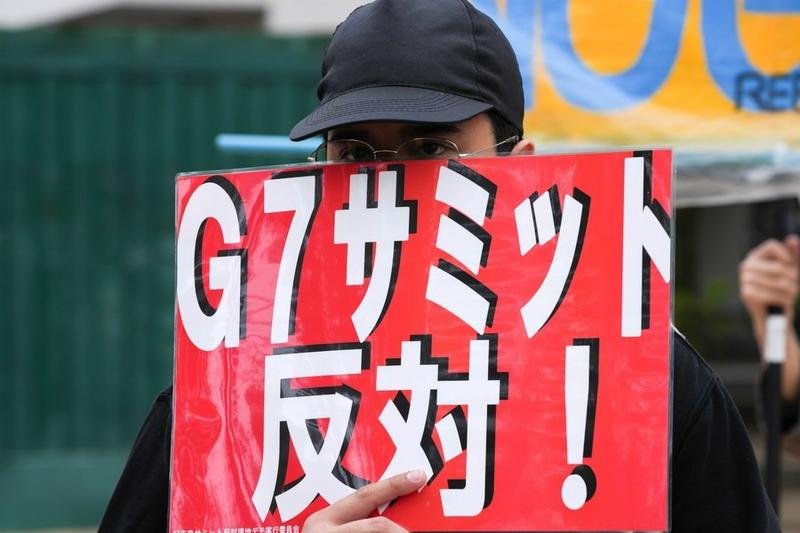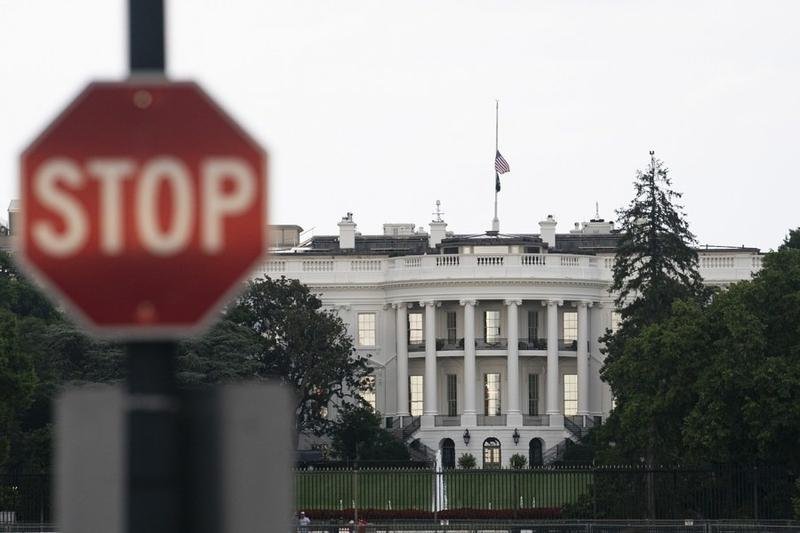
BEIJING – The US-led Group of Seven ended its three-day gathering on Sunday in Hiroshima, Japan. In the bloc's communique rushed out on Saturday, the G7 leaders said they are not "decoupling" from China but "de-risking" instead.
The elaborately crafted term, previously used by America's European allies in their China policy and then parroted by officials of the United States, might sound milder. But as many skeptics have revealed, the underlining hostility against China remains.
The glorified decoupling rhetoric comes as Washington has been facing multiple economic woes at home, ranging from a highly possible US default on debt to the financial turmoil exacerbated by problematic interest hikes and sudden collapses of several banks.
Decoupling with the world's most promising and dynamic market is unwise and unbearable for US companies. Ditto for American consumers. With affordable Chinese products, they can avoid a more severe cost of living crisis.
Figures also tell that decoupling with China goes against the trend. US-China trade in goods hit a new record of $690.6 billion in 2022, according to data published by the US Bureau of Economic Analysis in February.
Washington’s allies might think they benefit from following the US to contain China. But the US is so self-serving that its allies have become "half accomplices, half victims"
Under such circumstances, Washington has attempted to beautify its decoupling rhetoric, making it more acceptable to the US public, especially US companies. Such a change in language by the US administration has also reflected its paradoxical mindset. While it needs China's cooperation in some fields, Washington wants to continue its containment against it.
Moreover, the newly fashionable term represents Washington's renewed effort to appease its allies. If decoupling goes too far, it will not only drag down the US economy but also drive away its allies, an opinion piece published by Politico warned.
Over the past years, even Washington's closest friends have questioned America's hostile policies toward China. French President Emmanuel Macron said the European Union and China should work together to avoid "decoupling and breaking the chain."
A recent research report by an Austrian think tank estimated that if decoupled from China, Germany will see its GDP drop by 2 percent per year, equivalent to a loss of 60 billion euros (some $65 billion).
By transforming its harsh narrative into a softened tone, the US aims to handle the discord with its allies.
But don't be fooled.
A change in words does not mean a difference in action. In essence, de-risking is hardly different from decoupling.
Washington has been stepping up its siege of China in high technology and other areas. Recent moves include advancing the China competition bill 2.0 to the heated discussion on the so-called resilient supply chains of semiconductors at the G7 summit and from advocating "friend shoring" to restricting US investment in China.
In the view of Washington and some of its allies, the risks they face are induced by China, and only by containing China can they eliminate them. Such a ridiculous mentality creates real risks for the world.

Recently, Washington and some Western capitals have undermined international rules, incited ideological antagonism, engaged in bloc confrontation, abused the monopoly position of their currencies to impose a long-arm jurisdiction and unilateral sanctions against other countries, and exported their own inflation and financial crises to other parts of the world.
Washington's allies might think they benefit from following America to contain China. But the US is so self-serving that its allies have become "half accomplices, half victims".
A recent prime example is the US Inflation Reduction Act. Granting green incentives and tax breaks for companies that produce in the US, the act has badly hurt Europe, with more European companies tempted to relocate to the US.

Compared to the US, China has brought the world opportunities, cooperation and stability. According to the General Administration of Customs, China's total goods trade reached a record 42.07 trillion yuan ($6.2 trillion) in 2022, up 7.7 percent year on year, topping the world for six consecutive years.
China is a major trading partner of more than 140 countries and regions. The International Monetary Fund forecast that China's contribution to global economic growth will stand over one-third this year.
Clearly, so-called de-risking is just another pretext fabricated by Washington to contain China. By playing word games, the US is putting the development of humanity at risk. Washington must be aware that walking further down this road is dangerous.
Source:China Daily [2023-05-26]




